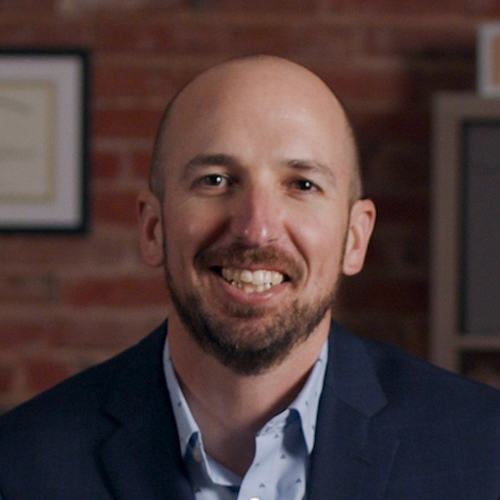An AI-Enhanced Trading Strategy That Works
Andy Snyder|September 13, 2023

Something very special is happening at Manward right now.
Later today, our own Alpesh Patel is going live with a project that’s been in the works for months… a way to apply the data-crunching power of ChatGPT to his already successful Growth-Value-Income trading strategy.
(Are you coming to Alpesh’s event? Sign up right here to see the shocking results TODAY at 2 p.m. ET.)
It’s not an exaggeration to say Alpesh is one of the greatest investing minds on the planet. He’s worked with royalty, huge sovereign funds and prime ministers… and he’s even spent time in the halls of Congress (I try not to hold it against him).
He’s a Dealmaker. He works extremely closely with the British government to make big business deals and attract entrepreneurs of all sizes to the nation’s economy.
His GVI Investor service combines his decades of insider experience with the down-to-earth, common-sense investing approach that is not only what Manward is known for… but what we demand from anybody whose work we publish.
And when you learn more about Alpesh’s background… and all he’s achieved… you’ll see why we’re so excited he’s part of the Manward team. And why we’re so excited about his AI-enhanced trading strategy.
Ahead of his big event today, I asked Alpesh a few questions and have included the best parts here.
Andy: Alpesh, looking at your résumé, it’s clear to me that you’re not afraid of hard work.
So just in the simplest terms… tell us how you got to where you are today, what drives you and what you’re passionate about.
Alpesh: Well, I’d always been fascinated by investing because I liked the idea of a bunch of people working incredibly hard in the companies in which I’d be a shareholder.
This started off when I was at school. I didn’t come from a privileged background. There was no silver spoon in my mouth, and I wanted to find a way to help my family. And so I thought, “Well, look, I’m at school. There’s not much I can do. But one thing I can do is try to save a little bit of money and invest in stocks.”
And that’s when I thought, “If I own shares in these companies, then the people who are working in those companies are working incredibly hard to give me a return.”
And while I trained thereafter to become a lawyer – or what we in the U.K. call a barrister – my investment outlook was always global, very much U.S.-focused. Then, after I became a lawyer, I thought, “You know what? I love the investing world far more.”
So I left my practice as a lawyer. And I was exposed to the world of investing even more when I worked in the U.S. Congress in Washington, around the mid-1990s. The internet was just starting to take off in the U.S. And so I dove deep into how to use the internet as a research tool to get more and more information and make my life easier as an investor.
I came back to the U.K. afterward, and by this time I’d decided, “Look, if I want to invest full time and eventually set up a hedge fund and an asset management company, I better meet the world’s leading traders and investors.”
So I approached the Financial Times with an idea for a book. The team there agreed to publish it as long as I got some big names, which I did – most of whom happened to be American.
And that opened up the doors. I got great mentoring, advice and information from the people I interviewed. The Financial Times then said, “Look, would you like to do a follow-up, but focused on the internet part of trading and investing?” And that began book No. 2 of… I think we’re at book No. 18… and they’ve now been translated into some eight languages.
Around this time, the global head of Bloomberg happened to watch an interview I was doing on CNN. She said, “Would you like your own TV show? You’re really good at explaining this stuff to people in simple terms.” And it snowballed from there. CNBC saw me and said, “Look, would you like to co-host with us?” So I was doing that. And I work with the BBC to this day. There, I do newspaper reviews where I interpret global events – not just economic ones but political ones as well.
In the middle of all of that, I became a visiting fellow at Oxford University, where, once again, I was spotted. It was the right place, right time. (It’s a bit of a Forrest Gump kind of life that I’ve led.)
I was researching behavioral finance, where investing meets psychology. And this was before the Nobel Memorial Prize in Economic Sciences went to two American psychologists in 2002. So that was a really exciting time to be covering that area at Oxford and also, at the same time, writing my column in the Financial Times.
So this whole new passion arose, which was not just investing for myself but actually giving people the absolute best, top-tier insights from academic research, in a practical way that made them better investors. That became my huge passion.
And then, back in 2005, I set up my asset management company, which was an obvious thing to do. But really, my passion remained educating others and enabling them to empower themselves.
Somewhere in all that – because I got noticed, because of the profile I had, because I’d won competitions at the Financial Times – the U.K. government asked me to find outstanding companies to invest in. And I’ve continued doing that over the past 17 years. My official title – it says it on my business card – is Dealmaker. So that is my role – to make deals, to get tech companies into the U.K.
Andy: In one of your early Financial Times columns, you mentioned your bullishness for American equities. Where did that come from?
Alpesh: Well, the funny thing was that was my very first column, and it was the first paragraph of my first column. I dug it up recently. I’ve got a whole bunch of past articles sitting in my office, and I like to pull them out from time to time because they’re great to look back at.
It was back in 1999 when I advised people to invest in U.S. equities. And from 1999 to this day, U.S. equities have generally outperformed assets from pretty much anywhere else in the world.
And my bullishness really came from a deep dive into the research. I’m really very data-driven. I do not like speculating. I do not like gambling. And the reason for that is my money is being invested. And I treat all of the information I provide as if my money were being invested, as if my retirement and my son’s inheritance were at stake.
So when I look at companies, I look at them with a view that this data is a CV that has been put in front of me. This is a résumé, and these companies are going to be the custodians of my son’s future wealth. Therefore, these companies better be darn good because I’m interviewing them and deciding whether or not I should give them capital.
So I take 9,000-odd equities trading on the markets, and I really drill down into their numbers. Then I run them through my proprietary system (which now includes AI) to make sure I’m finding the very best stocks to recommend. I don’t think many people – I know some, but I don’t know many – have my level of diligence.
I don’t do the whole “Oh, I’m just going to buy this for the next seven years” thing. How can you decide today to be married to a company for the next seven years when the world changes so much? I look at a 12-month holding period because the research shows that’s typically best.
So that’s really been my perspective on the markets – and the secret to my success. It’s very much been data-driven.
[End of interview]
And now Alpesh has taken that data-driven approach to the next level by adding ChatGPT to his trading strategy. And the results have been SHOCKING.
You can see how he does it TODAY at 2 p.m. during his AI Super Trader Summit.
Don’t miss it. Click here to reserve your spot for his FREE event.
Be well,
Andy

Andy Snyder
Andy Snyder is an American author, investor and serial entrepreneur. He cut his teeth at an esteemed financial firm with nearly $100 billion in assets under management. Andy and his ideas have been featured on Fox News, on countless radio stations, and in numerous print and online outlets. He’s been a keynote speaker and panelist at events all over the world, from four-star ballrooms to Capitol hearing rooms.




